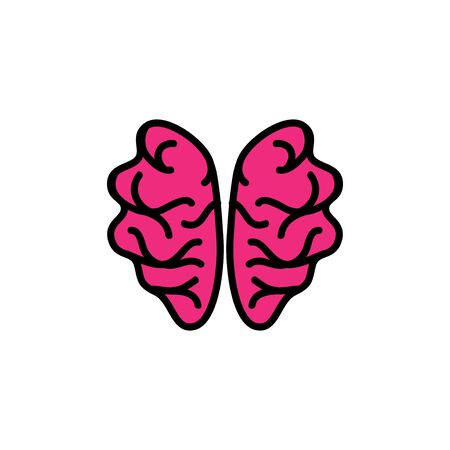Introduction to Cognitive Rehabilitation in the UK
Cognitive rehabilitation is a vital component of recovery for individuals who have experienced brain injuries. In Britain, thousands of people each year face challenges such as memory loss, difficulty concentrating, and impaired problem-solving abilities following incidents like strokes, traumatic brain injuries, or neurological conditions. Cognitive rehabilitation aims to help these survivors regain essential thinking skills, adapt to their new circumstances, and improve their quality of life. The process involves structured therapies and strategies that are tailored to each person’s unique needs, fostering independence and supporting integration back into family life, work, and the wider community.
The importance of cognitive rehabilitation cannot be overstated, particularly within the context of the UK’s healthcare system. The NHS and various charitable organisations work collaboratively to deliver accessible, evidence-based services across England, Scotland, Wales, and Northern Ireland. This approach ensures that patients receive consistent care regardless of where they live. Britain’s commitment to patient-centred care means that cognitive rehabilitation is not just about clinical interventions but also about empowering survivors and their families with practical tools and emotional support throughout the recovery journey.
2. Traditional Versus Contemporary Approaches
Cognitive rehabilitation for brain injury survivors in Britain has evolved significantly over the years, moving from traditional methods to more innovative, evidence-based practices. Understanding these differences is essential for patients and their families when considering the most effective interventions. Below is a comparison of established versus contemporary approaches commonly utilised in the UK:
| Aspect | Traditional Methods | Contemporary Innovations |
|---|---|---|
| Therapeutic Focus | Emphasis on compensatory strategies and basic cognitive exercises (e.g., memory drills, paper-and-pencil tasks) | Person-centred, goal-oriented programmes integrating technology and real-world activities |
| Delivery Setting | Mainly clinic-based with limited community integration | Hybrid models including home-based digital therapies, tele-rehabilitation, and community involvement |
| Use of Technology | Minimal use of digital tools or adaptive equipment | Incorporation of virtual reality, mobile apps, and computer-assisted training tailored to individual needs |
| Evidence Base | Reliance on long-standing clinical tradition and expert opinion | Guided by current research, randomised controlled trials, and patient-reported outcomes specific to the UK context |
| Patient Involvement | Passive recipient of care with standardised protocols | Active participant in goal setting and therapy design, fostering empowerment and motivation |
| Cultural Adaptation | Lesser focus on culturally relevant content for British populations | Culturally sensitive interventions reflecting diverse needs across Britain’s communities |
The shift towards contemporary approaches is supported by growing evidence demonstrating improved functional outcomes and patient satisfaction. For instance, NHS Trusts and independent rehabilitation providers now routinely incorporate digital platforms that allow for remote monitoring and personalised feedback. This evolution reflects Britain’s commitment to progressive healthcare while respecting the unique experiences of brain injury survivors. By bridging traditional expertise with modern innovation, the UK continues to lead in delivering comprehensive cognitive rehabilitation tailored to each individual’s journey.

3. Technological Advancements and Digital Solutions
The landscape of cognitive rehabilitation in Britain has been significantly transformed by cutting-edge technological advancements. The integration of digital tools, virtual reality (VR), and mobile applications into therapeutic programmes is offering fresh hope for brain injury survivors striving to regain cognitive abilities. These innovations not only enhance traditional rehabilitation but also enable more personalised, engaging, and accessible support tailored to the unique needs of each patient.
One of the standout developments in recent years is the use of VR-based cognitive training. Several NHS trusts and UK research institutions have piloted VR environments designed to simulate real-life scenarios, allowing patients to practise memory, attention, and problem-solving skills in a safe, controlled setting. This immersive approach helps bridge the gap between clinical exercises and everyday challenges, facilitating smoother transitions back into daily life.
Mobile apps specifically developed or adapted for British users are also making significant contributions to cognitive recovery. These apps often feature interactive tasks that target memory recall, executive function, and language skills. Many are designed with input from both healthcare professionals and brain injury survivors, ensuring cultural relevance and accessibility for diverse populations across the UK. Importantly, these digital solutions can be used at home or on-the-go, empowering patients to continue their rehabilitation beyond clinic walls and supporting ongoing progress.
Furthermore, digital platforms now offer remote monitoring and feedback capabilities. Clinicians can track patient engagement and outcomes in real-time, enabling timely adjustments to therapy plans and fostering a more collaborative approach between therapists and patients. For those living in rural areas or facing mobility challenges, tele-rehabilitation services have become an invaluable resource, reducing barriers to care and helping ensure equitable access throughout Britain.
As these technologies evolve, they are increasingly being integrated within NHS frameworks and supported by local charities focused on brain injury recovery. Collaboration between tech developers, clinicians, and patient advocacy groups continues to drive forward innovation—making Britain a leader in digital cognitive rehabilitation solutions that are both effective and culturally attuned.
4. Community-Based Rehabilitation Programmes
Community-driven initiatives play a pivotal role in cognitive rehabilitation for brain injury survivors across Britain. Unlike hospital-based interventions, community programmes leverage local resources and support networks to nurture recovery within familiar environments. These approaches not only promote engagement but also foster independence and social inclusion, which are essential for long-term success.
The UK’s Unique Support Structures
The United Kingdom boasts a rich tapestry of community-based services that cater specifically to the needs of brain injury survivors. Charities, local councils, and NHS partnerships collaborate to deliver tailored cognitive rehabilitation close to home. This collaboration ensures ongoing access to resources while empowering individuals and their families through peer-led groups, social clubs, and activity centres.
Key Features of Community-Based Programmes
| Programme Type | Description | Benefits |
|---|---|---|
| Peer Support Groups | Facilitated by trained volunteers or professionals, offering a safe space for sharing experiences and advice. | Reduces isolation, builds confidence, and encourages mutual learning. |
| Cognitive Workshops | Structured sessions focusing on memory, attention, and problem-solving skills using evidence-based techniques. | Enhances cognitive function in real-life settings. |
| Social Prescribing | Linking survivors with community activities such as gardening clubs or arts sessions via NHS referrals. | Improves mental wellbeing and reintegrates individuals into society. |
| Family Carer Training | Educational resources and workshops supporting carers in managing daily challenges. | Strengthens family involvement and reduces caregiver stress. |
Sustaining Recovery Through Local Partnerships
The effectiveness of these programmes lies in the strong sense of community ownership prevalent throughout the UK. Local organisations work hand-in-hand with healthcare professionals to provide continuity of care beyond initial medical treatment. By embracing community-based rehabilitation, Britain sets itself apart in fostering holistic, patient-centred recovery journeys—ensuring that survivors are supported every step of the way towards regaining independence and quality of life.
5. Personalised Therapies and Patient-Centred Care
The landscape of cognitive rehabilitation for brain injury survivors in Britain has evolved significantly, particularly with the growing emphasis on personalised therapies and patient-centred care. Tailoring treatment plans to suit each individual’s unique needs and preferences is now a cornerstone of modern rehabilitation practices within the NHS. This approach recognises that no two patients experience brain injury in exactly the same way, and as such, their recovery journeys must be equally distinct.
At the heart of this innovation is active collaboration between healthcare professionals and patients. By engaging survivors in shared decision-making, clinicians are able to develop bespoke rehabilitation programmes that not only address cognitive deficits but also consider each person’s lifestyle, goals, and family circumstances. Such personalisation enhances motivation, promotes independence, and increases the likelihood of long-term success.
Within the NHS framework, multidisciplinary teams—including neuropsychologists, occupational therapists, speech and language therapists, and specialist nurses—work together to deliver integrated support tailored for every stage of recovery. Regular assessments ensure that therapy remains responsive to progress or setbacks, allowing interventions to be adapted promptly when necessary.
Importantly, patient-centred care extends beyond clinical settings. Survivors are encouraged to involve carers and loved ones in their rehabilitation process, reinforcing a sense of community support which can be crucial for emotional wellbeing. The inclusion of culturally sensitive resources and respect for individual backgrounds further exemplifies Britain’s commitment to inclusive care.
Ultimately, the adoption of personalised therapies within the NHS not only empowers brain injury survivors but also reflects a broader shift towards holistic healthcare. This innovative approach ensures that every individual’s journey is respected and supported—helping them regain confidence and independence as they rebuild their lives.
6. Barriers, Opportunities, and Future Directions
An honest look at the challenges faced, current opportunities, and policy recommendations for advancing cognitive rehabilitation in Britain.
Barriers to Effective Cognitive Rehabilitation
Despite significant progress in innovative therapies for brain injury survivors, several obstacles continue to impede widespread implementation across Britain. Limited access to specialist services, particularly outside major cities, can leave many individuals waiting months for essential support. A lack of standardised training for professionals and variable funding between NHS trusts also results in inconsistent care. Additionally, stigma associated with cognitive impairments may discourage survivors from seeking help or fully engaging with rehabilitation programmes.
Opportunities for Growth and Improvement
However, there are promising opportunities on the horizon. The growing adoption of digital health platforms makes it possible to deliver cognitive rehabilitation remotely, reducing geographical barriers and increasing flexibility for patients. Multidisciplinary collaborations between occupational therapists, neuropsychologists, and community organisations offer holistic support tailored to individual needs. Moreover, ongoing research into artificial intelligence and virtual reality holds great potential for personalised interventions that can adapt as a patient’s recovery progresses.
Policy Recommendations
To ensure equitable access and high-quality outcomes, policymakers should prioritise the following actions:
- Increase funding to expand specialist cognitive rehabilitation teams within the NHS and community settings.
- Standardise professional training and clinical guidelines nationwide to minimise regional disparities in care.
- Invest in public awareness campaigns to reduce stigma surrounding brain injuries and promote early intervention.
- Support innovation grants for technology-driven rehabilitation tools that are accessible to diverse populations.
The Path Forward
By addressing current barriers and embracing new opportunities, Britain has the potential to become a leader in cognitive rehabilitation for brain injury survivors. Collaborative efforts among healthcare providers, policymakers, researchers, and patients themselves will be crucial in shaping a future where every survivor receives compassionate, effective support tailored to their unique journey of recovery.


